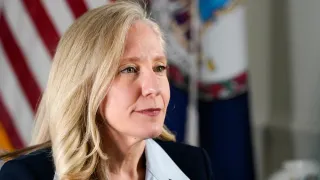November 6, 2020
Uber's Food Delivery Service Outshines Ride Service
READ TIME: 2 MIN.
Uber's food delivery business brought in more money during the third quarter than its signature rides business, showing just how much consumer behavior has changed – and how far the company has adapted – since the pandemic struck.
The San Francisco-based ride-hailing company lost $1.09 billion in the third quarter as many customers continued to stay out of shared vehicles.
Uber brought in $3.13 billion in revenue, down 18% from the same time last year. Its mobility business, which includes ride-hailing, scooters and bikes, brought in $1.37 billion during the quarter, down 53% from the same time last year. Despite the decline, the rides business showed improvement from the second quarter, when it brought in just $790 million.
Its Eats business generated $1.45 billion in revenue, up 125% from a year ago as restaurants relied on Uber for delivery and the trend of people ordering in instead of dining out during the pandemic continued.
Uber's food delivery business also brought in more revenue than its rides business in the second quarter, when demand for rides was even lower due to the pandemic.
"Despite an uneven pandemic response and broader economic uncertainty, our global scope, diversification, and the team's tireless execution delivered steadily improving results," said Dara Khosrowshahi, Uber CEO, in a prepared statement.
Uber Eats continued to add restaurants to its app, and its partnerships with restaurants grew by more than 70% compared with last year. It also added a contactless payment feature to allow customers who are dining in restaurants to pay using their Uber Eats app.
Uber also expanded its grocery delivery service, which is now operating in 10 countries outside the U.S. It also launched a prescription drug delivery pilot program in Dallas and Seattle.
The quarterly figures were released a day after Uber scored a major victory in California. Voters there passed Proposition 22, granting Uber, Lyft, Doordash and others an exception to a law that sought to classify their drivers as employees, an expense that analysts thought would have pummeled Uber's business in California.






